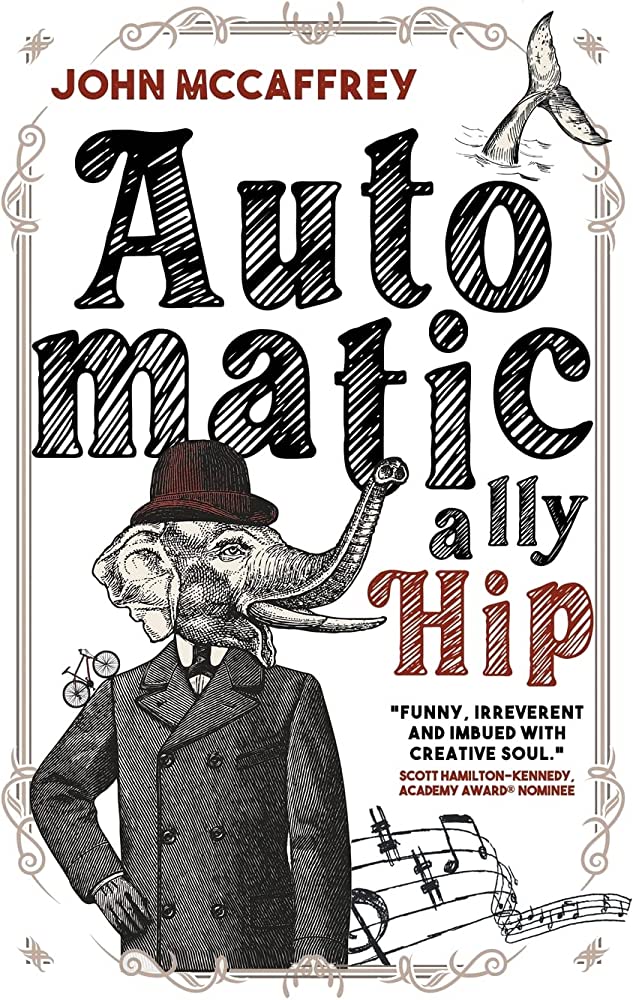In “Whale,” a story in John McCaffrey’s collection “Automatically Hip,” a high-school student tells the class that his grandfather was a typesetter before the age of computers. Another says that her mother lost her job at Wal-Mart to a machine that does the checking out. The conversation is sparked, according to the teacher’s account to his roommate later in the day, by a girl asking why there are no silversmiths anymore? They feature in the popular 18th century-set novel the class is studying, and she says it sounds like a cool job.
William, the central character in “Shanghai Cut,” thinks the same about the trade his aging father-in-law has given up – barbering – and would really love to try it.
The narrator in “Grooved Pavement” recalls a summer job in Upstate New York after graduating college, and a man called Miller, who took him under his wing in the crew repairing a stretch of highway. Each Friday, he had dinner with the man and his wife.
After he got started his career on Wall Street, he would amuse his colleagues with stories about the mildly eccentric Miller.
“But,” he continues, “it was the work he did, the grooving of pavement, that most interested my friends.”
They were young professionals “toiling in the ethereal confusion devoid of non-money related outcomes.”
Slots gouged on the side of the road by Miller, though, stopped cars sliding into ditches when it rained and warned drivers not to slide into ditches when it didn’t.
Some of McCaffrey’s 14 stories are about the pursuit of connection, such as the dinner date agreed upon in “Life After Death” with the condition that no words are spoken; or “Spin,” in which older women try to play matchmaker for their middle-aged children.
The title story, by way of contrast, takes as its starting point an incident in 1951, and has four first-person narrators, including, very briefly, jazz great Thelonious Monk.
Fellow author Frank Haberle has said that the stories “reassure us that there people still out there searching for something – and in today’s chaotic, fractured world, the search is all that matters. McCaffrey is truly an old-school storyteller in a post-modern world, who captures the unsteadiness of our age with great humor and compassion.”
In the view of another author, Erik Raschke, “McCaffrey has deviated from the idiosyncratic to gift us with vignettes of brief, human warmness.”
McCaffrey, who pens a regular column for the Good Men Project, teaches writing at the collegiate and community level. He is also the longtime director of a nonprofit mental health treatment and training organization in New York City. For more about him and his work visit www.jamccaffrey.com. And see the Q & A for the Echo below.

John McCaffrey
Date of birth: Dec. 23, 1964
Place of birth: Corning, N.Y.
Spouse: Grace Pei-McCaffrey
Residence: Wainscott, N.Y.
Published works: “The Book of Ash,” “Two Syllable Men,” “What’s Wrong With This Picture?”, “Automatically Hip” (vineleavespress.com).
What is your writing routine? Are there ideal conditions?
For the past few years, it is project specific -- meaning, I write according to deadline, no matter it’s one I set for myself, or set by a publisher/journal/paper. No matter the project, or the size, I set a daily word-count to complete the work, rather than, say, time-at-the-keyboard goals. I’ve learned from experience that no matter how busy I am or the life stresses placed on me, I am able to write at least 250 words a day. But when conditions are ideal, i.e. my family is good, my pets still love me, and I can bend down and tie my shoes without toppling over in pain, my daily word-count total rises to the 500 per-day mark or more.
What advice do you have for aspiring writers?
Read. Read what you like, and now and again read what you don’t like, as long as it connects you to culture, art or any subject you want to learn more about. From this foundation of reading, write with the confidence you are joining in “literary arms” with all the published writers you’ve been reading. You are one of them. By identifying as a writer, and voicing this vocation, even if it doesn’t yet pay, or will never pay, is the first and most important step to becoming a writer. Which, of course, you already are, since you are writing. If this makes sense, you are already on your way.
Name three books that are memorable in terms of your reading pleasure.
“The Sun Also Rises,” Ernest Hemingway; “Trouble is My Business,” Raymond Chandler; “Ashenden: Or the British Agent,” Somerset Maugham.
What book are you currently reading?
“Learning to Love: The Journals of Thomas Merton.”
Is there a book you wish you had written?
“The End of the Affair,” Graham Greene.
Name a book that you were pleasantly surprised by.
“A Coffin for Dimitrios,” Eric Ambler.
If you could meet one author, living or dead, who would it be?
George Orwell.
What book changed your life?
“Black Like Me,” John Howard Griffin.
What is your favorite spot in Ireland?
The Black Valley in Kerry.
You're Irish if...
You sprinkle holy water around the house, and on family members, before bad storms.








